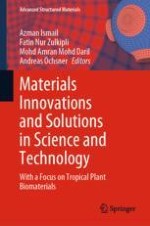2023 | OriginalPaper | Buchkapitel
3. Integrating a Hydrogen Fuel Cell in a Vehicle as a Hybrid for a Sustainable Energy Application
verfasst von : Muhammad Amer Zahin Ahmad Dzaki, Ernie Mazuin Mohd Yusof, Siti Nor Zawani Ahmmad, Norziana Yahya, Muhammad Remanul Islam
Erschienen in: Materials Innovations and Solutions in Science and Technology
Verlag: Springer Nature Switzerland
Aktivieren Sie unsere intelligente Suche, um passende Fachinhalte oder Patente zu finden.
Wählen Sie Textabschnitte aus um mit Künstlicher Intelligenz passenden Patente zu finden. powered by
Markieren Sie Textabschnitte, um KI-gestützt weitere passende Inhalte zu finden. powered by
